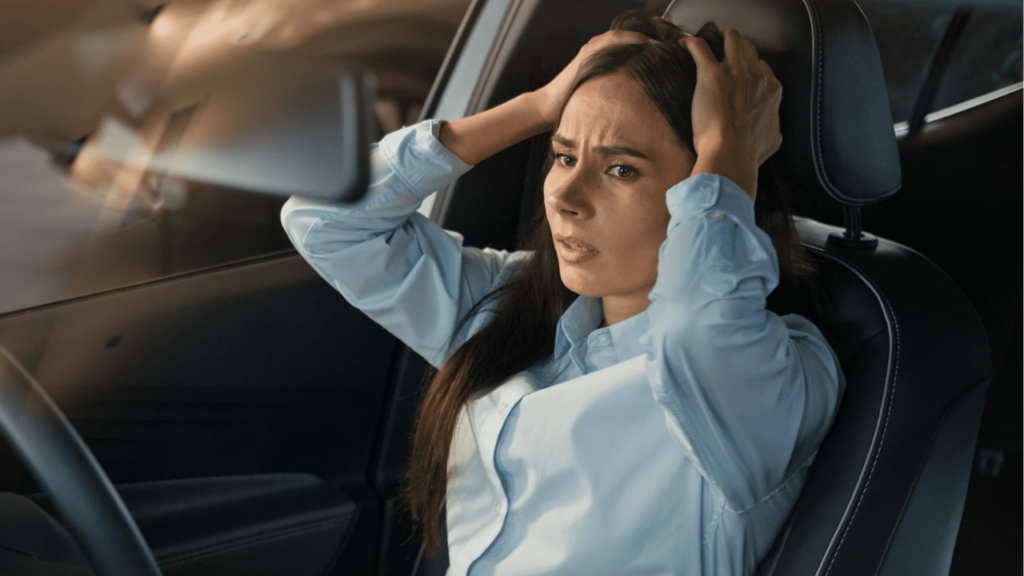Driving anxiety is more than just a nuisance—it can deeply impact one’s quality of life, leading to a decrease in independence, avoidance of social activities, and even career limitations. This article delves into the nature of driving anxiety is ruining my life, its causes, and effective strategies to overcome it, providing a beacon of hope for those feeling its grip on their daily lives.
What is Driving Anxiety?
Driving anxiety involves an intense, irrational fear of driving that can manifest in various ways, from mild apprehension to a full-blown phobia. For many, the mere thought of driving can trigger anxiety symptoms such as heart palpitations, sweating, and trembling. This type of anxiety is particularly challenging because it can occur even in those who have driven for years without incident. People often say that driving anxiety is ruining my life because it limits their ability to function normally.
Causes and Triggers of Driving Anxiety
Several factors can contribute to the development of driving anxiety. Traumatic past experiences, such as car accidents, are common triggers. However, anxiety can also stem from less obvious sources, such as the fear of getting lost or the pressure of driving in heavy traffic. Others may fear the judgment of other drivers or worry about the responsibility of having passengers. These fears often lead individuals to feel that driving anxiety is ruining my life by restricting their mobility and freedom.
Stories of Recovery: You Are Not Alone
Personal stories of overcoming driving anxiety can offer hope and inspiration. Take, for example, the story of Benoit, who suffered a panic attack while driving. Initially, he avoided driving altogether, which significantly limited his independence. However, through dedicated cognitive-behavioral therapy (CBT), he gradually regained his confidence and now drives without fear.
Effective Treatment Methods
Professional help is often crucial in overcoming driving anxiety. Cognitive-behavioral therapy (CBT) is one of the most effective treatments. It involves identifying negative thought patterns and replacing them with more realistic and positive ones. Exposure therapy, another valuable approach, helps individuals gradually face their fears in a controlled and safe environment. These methods provide hope to those who feel driving anxiety is ruining my life.
Self-Help Strategies for Immediate Relief
For those looking for immediate coping mechanisms, several self-help strategies can be useful. Techniques such as deep breathing, progressive muscle relaxation, and visualization can help manage anxiety symptoms on the spot. These methods not only provide immediate relief but also empower individuals to take control of their anxiety. They are crucial tools for anyone feeling that driving anxiety is ruining my life.
Impact of Driving Anxiety on Daily Life
The feeling that driving anxiety is ruining my life is not uncommon among those who struggle with this condition. The impact extends far beyond the physical symptoms of anxiety. It can infiltrate various aspects of life, leading to social isolation, missed opportunities, and a diminished sense of independence. Many individuals find themselves avoiding social gatherings, family events, or even job opportunities simply because they cannot face the prospect of driving. This avoidance behavior reinforces the anxiety, creating a vicious cycle that is hard to break.
The Role of Support Systems
Support from family, friends, and even online communities can play a critical role in overcoming driving anxiety. Having a strong support system helps individuals feel understood and less isolated in their struggles. Whether it’s through encouragement, sharing experiences, or offering practical help like driving lessons or accompanying someone on short trips, support can significantly ease the burden of driving anxiety. This support can be a lifeline for those who feel that driving anxiety is ruining my life, offering both emotional comfort and practical assistance.
Practical Tips for Managing Driving Anxiety
For those who feel that driving anxiety is ruining my life, there are practical strategies that can be implemented to manage and reduce anxiety. Creating a calming environment in the car, such as by listening to soothing music, keeping the car clean, and ensuring a comfortable seating position, can make a significant difference. Defensive driving techniques, like maintaining a safe following distance and scanning the road ahead for potential hazards, can also help individuals feel more in control and less anxious behind the wheel.
FAQs About Driving Anxiety
1. What are the main symptoms of driving anxiety?
Driving anxiety symptoms can include sweating, trembling, rapid heartbeat, and feelings of panic or dread when thinking about driving.
2. Can driving anxiety be cured?
Yes, with the right treatment approach, such as cognitive-behavioral therapy and exposure therapy, many people can overcome their driving anxiety and regain confidence on the road.
3. How does cognitive-behavioral therapy help with driving anxiety?
CBT helps by changing negative thoughts related to driving into more positive and realistic ones, thereby reducing anxiety and improving driving confidence.
4. Are there any self-help techniques for driving anxiety?
Yes, techniques like deep breathing, progressive muscle relaxation, and visualization can help alleviate anxiety symptoms and promote relaxation while driving.
5. When should I seek professional help for driving anxiety?
If driving anxiety is affecting your daily life, causing you to avoid driving, or leading to significant stress, it’s important to seek help from a mental health professional specialized in anxiety disorders.

